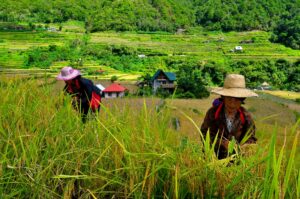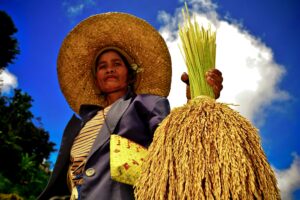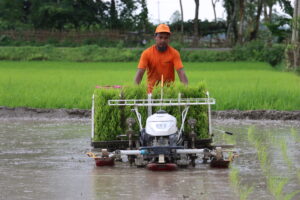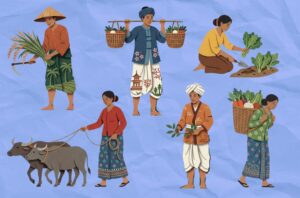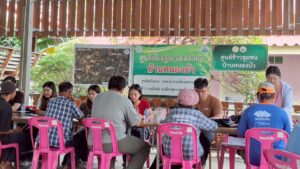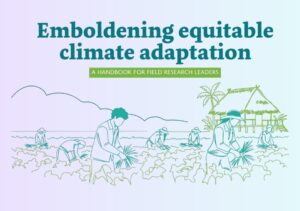As we grapple with the world rice crisis, I think of Alexander Humboldt, Henry Bates, Alfred Russel Wallace, Charles Darwin, and Richard Spruce. These extraordinary naturalists wove their exceptional powers of observation into the bases of the modern sciences of biogeography, meteorology, geology, tropical biology, and evolution. Their wide interests and insight contributed to our concepts of the origin of species, natural selection, mimicry in animals, continental drift, and the Wallace Line. Spruce, for example, was responsible for the introduction of chinona trees to India for the extraction of quinine. These explorers were supreme generalists.
Scientists today are specialists who focus ever deeper into specific research areas. The continuing shift from the general to the specific is exacerbated by institutional policies, funding agencies, publication standards, and peer pressure. This specialization has also contributed massively to knowledge with immense benefits to society. This essay is not to debate the merits of each but, rather, to suggest that we might learn from past masters to address current problems.
Rice scientists likewise have become narrowly specialized and, thereby, increasingly isolated from their clients, the rice farmers who are consummate generalists. Extension agents, the conduit of information from laboratory to rice field, are often sequestered from researchers, treated as second-class workers, and reduced in number and institutional support. Further, within the scientific community, basic research is often favored over the applied, widening the gap between researchers and farmers.
If one research area should be exempt from overspecialization, it is agronomy, the study of field crop management. It is not. Agronomists rank somewhere between extension agents and biotechnicians in the elitist hierarchy of agricultural research. They are relatively few in number compared with breeders and geneticists of all sorts and their contributions are inadequately recognized. Perhaps to compensate, they, too, have become specialists: experts in soils, weed control, land and water management, plant nutrition, planting systems, crop rotation, and so forth. They are infected with a guild consciousness. Yet, specialized agronomic knowledge applied singly to the multiple management deficiencies of farms is inadequate to the task.
It is now widely recognized that rice yield gaps result from agronomic failings, and that future yield increases depend heavily on this science. Agronomy’s time has come to lift farm productivity out of stagnancy. Will it respond quickly and efficiently to the challenge?
Perhaps it is an insult to pose the question; yet, the answer is not evident to me. The issue is not lack of knowledge—agronomists have good answers to individual yield constraints. Nor is the problem ignorance of the need to bundle together solutions to interrelated management deficiencies. Farm yield is always constrained by several management deficiencies. Alleviation of one may increase yield modestly; simultaneous reduction of all narrows the yield gap substantially.
This integrated approach has resulted in spectacular productivity gains in Latin America through the Latin American Fund for Irrigated Rice (FLAR) agronomy program, and in several countries in Asia through integrated crop management.
Although modifications must be made continually for local conditions, it is evident that integrated agronomy works and has the power to balance Asian and Latin American rice supply and demand. Compared with seed-based technology, bringing agronomic improvements to millions of farmers is slow, difficult, and costly, and requires many more agronomists able to unite specialist knowledge into comprehensive solutions. But, it is the best alternative to repeat the success of the Green Revolution.
What, then, is the problem? I suggest it concerns agronomic overspecialization wherein pitifully few agronomists apply on-farm, holistic solutions to multiple yield limitations. The lesson from Humboldt, Darwin, et al. for research directors and project managers is to reward, not penalize, a generalist approach to solving farm problems. The greater the impact on yield, the greater should be the reward. This attitude could convince young, bright scientists to discard their lab coats and head to farmers’ rice fields as generalist agronomists. Rice farmers and consumers sorely need more of them.
_________________________________________
Dr. Jennings was principal scientist at the International Center for Tropical Agriculture and FLAR after founding the breeding program at IRRI (1961-67), where he helped develop IR8, the variety that ignited the Green Revolution in rice. See his IRRI pioneer interview at www.irri.org/publications/today/Jennings.asp.

